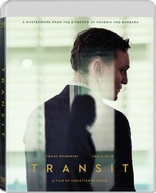Transit Blu-ray Movie
HomeTransit Blu-ray Movie 
Music Box Films | 2018 | 101 min | Not rated | Jul 09, 2019Price
List price:Amazon: $18.34 (Save 48%)
Third party: $18.34 (Save 48%)
Only 4 left in stock - order soon.
Movie rating
7.1 | / 10 |
Blu-ray rating
| Users | 0.0 | |
| Reviewer | 4.5 | |
| Overall | 4.5 |
Overview
Transit (2018)
When a man flees France after the Nazi invasion, he assumes the identity of a dead author whose papers he possesses. Stuck in Marseilles, he meets a young woman desperate to find her missing husband - the very man he's impersonating.
Starring: Franz Rogowski, Paula Beer, Godehard Giese, Lilien Batman, Maryam ZareeDirector: Christian Petzold
| Foreign | Uncertain |
| Drama | Uncertain |
| Period | Uncertain |
Specifications
Video
Video codec: MPEG-4 AVC
Video resolution: 1080p
Aspect ratio: 2.39:1
Original aspect ratio: 2.39:1
Audio
German: DTS-HD Master Audio 5.1
German: DTS-HD Master Audio 2.0
Subtitles
English
Discs
Blu-ray Disc
Single disc (1 BD)
Playback
Region A (locked)
Review
Rating summary
| Movie | 4.0 | |
| Video | 4.5 | |
| Audio | 4.0 | |
| Extras | 4.0 | |
| Overall | 4.5 |
Transit Blu-ray Movie Review
Time and again.
Reviewed by Jeffrey Kauffman July 14, 2019They say the more things change, the more they remain the same, and that statement echoes in ghostly, formidable ways in Transit, Christian Petzold’s rather audacious adaption of a 1942 novel by Anna Seghers which detailed the travails of a concentration camp escapee who is desperately trying to get out of occupied France and to some kind of haven. Had Petzold gone the tried and true route, Transit may have ended up at least somewhat like another recently reviewed film taking place in the general timeframe of World War II, The Aftermath, namely, an arguably overstuffed and glossy “historical” film centered on the personal traumas of certain individuals caught up in epochal events. In one of the supplements included on this Blu- ray, Petzold talks about his difficulty in adapting Seghers’ novel to the screen, mentioning how a chance viewing of a film by Chantal Akerman (Jeanne Dielman, 23, quai du Commerce, 1080 Bruxelles) which ostensibly took place in 1967 but which was filled with all sorts contemporary periphenalia from the time (decades later) when it was filmed, led him to a kind of epiphany that he should actually eschew the traditional way of doing something like this, and not try to recreate 1940s France. That means that events ostensibly refracting at least some plot elements from classics like Casablanca play out in Transit as if they were happening today. And in fact the story of refugees desperately attempting to find safety is of course a tale ripped from today’s headlines, for better or worse.
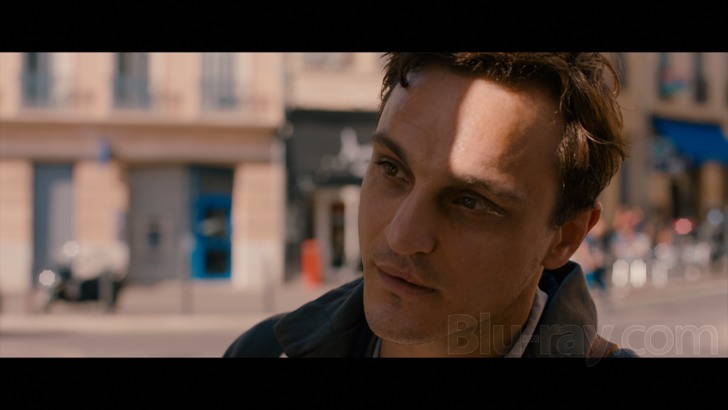
A furtive man darts into a diner as a slew of police vehicles speed by outside, their sirens blaring. Is he a wanted criminal? The question soon becomes, “who isn’t a wanted man (or woman)?”, in an ostensibly modern day Paris that is occupied by German forces and where necessary “papers” are a requirement for everyday living, including simply going for a walk. This man sits down next to the film's focal character, Georg (Franz Rogowski), a guy he obviously knows, someone perhaps aligned with some kind of resistance, and this stranger asks Georg to complete an errand for him: delivering some letters to an exiled author named Weidel. When Georg goes to the hotel he’s been told Weidel is holed up in, he discovers the man has recently (as in very recently) committed suicide. A distraught hotel manager, who wants no trouble from the authorities, simply “donates” Weidel’s few possessions to Georg.
Meanwhile, plans seemingly already in place to get a wounded refugee out of Paris involve Georg, and ultimately that badly injured guy and Georg are tucked into an empty boxcar en route to Marseilles, which is (as it was in the forties) a haven for refugees seeking some way egress from France. The rest of the film takes place in the weirdly scenic seaside city (weird due to the emotional context of the film). On the long train ride, Georg finally has a chance to rifle through Weidel’s possessions, which is when he discovers a letter from the Mexican consulate guaranteeing Weidel and his wife safe passage, along with a little money to ease the way. Included in the stash of letters given to him by his cafe acquaintance is a note from the wife, and it appears that there has been some kind of marital friction at play, with an on again, off again relationship. Upon finally reaching Marseilles, Georg discovers that his companion has died, and Georg himself barely gets out of the trainyard before the corpse is discovered by the authorities.
There are a couple of potentially odd aspects the film initially offers as Georg starts exploring Marseilles, though for those patient enough, Petzold ultimately does a rather good job of tying everything together. The first is a seemingly out of nowhere interchange with a soccer obsessed little boy named Driss (Lilien Batman, and, yes, that’s evidently his real name), who is finally revealed to have a connection to the badly injured man Georg was transporting on the train. That also involves the man’s (now) widow, a deaf woman living in what amounts to a refugee ghetto, in what is another “echo” of how little things have changed since the original setting of the source novel.
The other rather unexpected issue is the more or less sudden appearance of a narrator, who starts giving some “meta” information about things, especially when Georg, newly arrived in Marseilles, more or less “meets cute” with Weidel’s estranged wife Marie (Paula Beer). There’s a curiously distancing aspect to this narration conceit, and I’m frankly not sure it works for the film, though, again, Petzold plays his cards suitably close to his vest even with this approach, finally doling out some information about who exactly is doing the narrating as the story develops. That said, Petzold may be too clever by half at times with the whole "meta" aspect, as in a scene where the narrator is discussing Georg being "invisible" to everyone, at which point the film cuts to a closed circuit camera observing him.
The “plot” of the film almost approaches a certain “noir” sensibility in a way, since Georg takes Weidel’s papers to the Mexican consulate in the hopes they can get them to Marie, only to find himself mistaken for the author. Since that gives him a “free pass” out of France, he lets the mistake stand, though that puts him in peril with Marie, whom he, in one of the film’s patent contrivances, gets to know and starts to fall for (she is unaware of the mistake, and is under the impression her “real” husband is in fact wandering around Marseilles somewhere, perhaps looking for her). Marie is also involved with another refugee, meaning this is at the very least a ménage à quatre, at least if the spectral presence of Weidel is counted in the mix.
Rogowski bears more than a passing resemblance to Joaquin Phoenix, and he also has kind of the same wounded interior mien that Phoenix often displays in his characterizations. His work here anchors the film despite some structural imbalances and what some may feel is a pretty underdeveloped part for Beer as Marie. There's another old adage that states the journey is at least as important as the destination, and that's doubly the case with regard to Transit, especially since the destination seems ephemeral and out of reach.
Transit Blu-ray Movie, Video Quality 
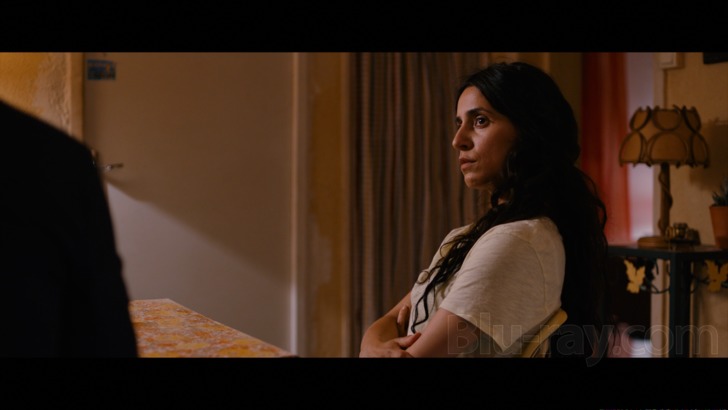
Transit is presented on Blu-ray courtesy of Music Box Films with an AVC encoded 1080p transfer in 2.39:1. This was shot utilizing Arri Alexa Minis (like The Aftermath, ironically) and presumably finished at a 2K DI. The French locations give this entry a rather odd sunny quality that contrasts rather markedly with the darker goings on being depicted, but that general brightness really helps to elevate both a vivid palette and especially consistency of detail levels. While there are moments that emphasize cooler tones like blues (the train ride to Marseilles is one such example), a lot of this presentation is positively summery and warm looking. Close-ups of faces offer precise looks at elements like crags or pores, and even midrange shots present above average fine detail levels. I noticed no compression anomalies of any kind.
Transit Blu-ray Movie, Audio Quality 
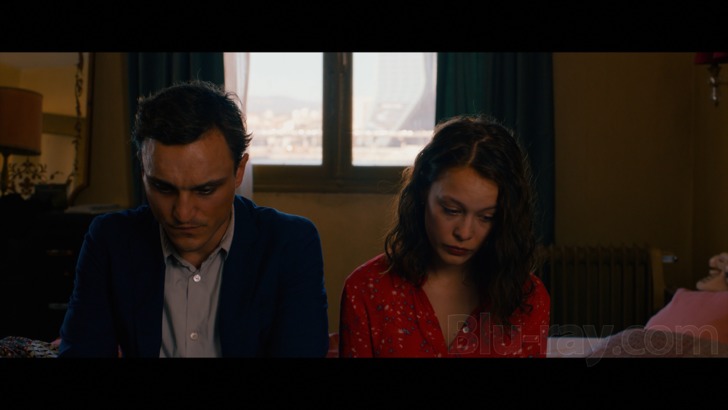
Transit features a DTS-HD Master Audio 5.1 track that is in both German and French (our specs only allow for one "major" language, and so as to not promote confusion, I'm only including German above in the listing). This is a rather subtle track, one that does in fact offer nice immersion, though often on an almost subliminal level in terms of background environmental noise or the splaying of a rather nice string laden score by Stefan Will. There are "showier" moments, as in the panning of sirens as police zoom by, or the crowded confines of a stairway where hopeful refugees are waiting for a meeting in the Mexican Consulate. Dialogue is rendered cleanly and clearly throughout this problem free presentation.
Transit Blu-ray Movie, Special Features and Extras 
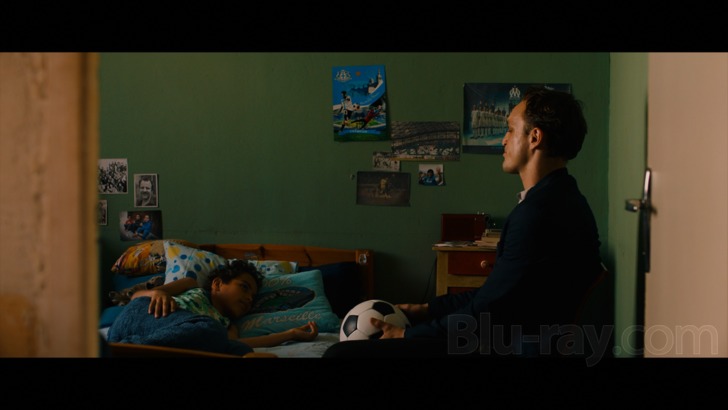
- Making of Traffic (1080p; 23:58) is an above average piece with some good behind the scenes footage and interviews. In German with English subtitles.
- The Cinema of Traffic (1080p; 6:00) is an interview with Christian Petzold. In German with English subtitles.
- Christian Petzold Q & A (1080p; 25:56) stems from a Film Society of Lincoln Center appearance.
- In Transit: Thrown into the World (1080p; 41:38) is another really interesting discussion with Christian Petzold, this time with Barbara Auer and Ben Gibson, from the Berlin International Film Festival in February 2018.
- The Refugee as a Person (1080p; 9:17) is an interview with star Franz Rogowski.
- Shooting Star: Franz Rogowski (1080p; 3:17) is a brief profile of the actor.
- Theatrical Trailer (1080p; 2:20)
Transit Blu-ray Movie, Overall Score and Recommendation 
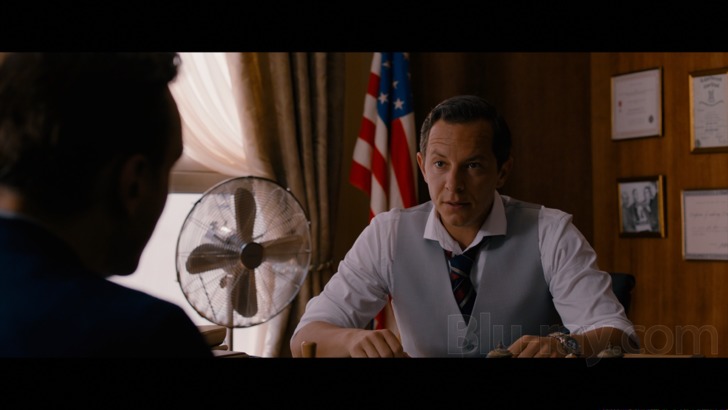
Fans of Petzold's previous works Phoenix and/or Barbara are almost certain to appreciate this latest offering from a rather unlikely provocateur. But anyone who has had their moral conscience awakened by the plight of global refugees due to the seemingly ceaseless cycle of news stories lately may well find this a riveting experience, despite its patently odd "time displacement". Performances are very strong here, and if the writing is perhaps too self-conscious, it's at least rather literary, and the film has a unique power that has the courage to ask some very difficult questions. Technical merits are first rate, the supplementary package excellent, and Transit comes Highly recommended.
Similar titles
Similar titles you might also like

The Image Book
Le livre d'image
2018

Dheepan
2015

Le Havre
2011

The Other Side of Hope
Toivon tuolla puolen
2017

Wrong Move
Falsche Bewegung
1975

Sarah's Key
Elle s'appelait Sarah
2010

Pickpocket
1959

La Chinoise
1967

Things to Come
L'avenir
2016

La Bête Humaine
1938

Monos
2019

Code Unknown
Code inconnu: Récit incomplet de divers voyages
2000

Babette's Feast
Babettes gæstebud
1987

Alambrista!
¡Alambrista! / The Illegal
1977

The Secret of the Grain
La graine et le mulet
2007

The Painted Bird
Nabarvené ptáce / Slipcover in Original Pressing
2019

Like Someone in Love
ライク・サムワン・イン・ラブ / Raiku samuwan in rabu
2012

An Elephant Sitting Still
大象席地而坐 / Da xiang xi di er zuo
2018

Stray Dogs
郊游 / Jiao you
2013

The Marriage of Maria Braun
Die Ehe der Maria Braun
1978
